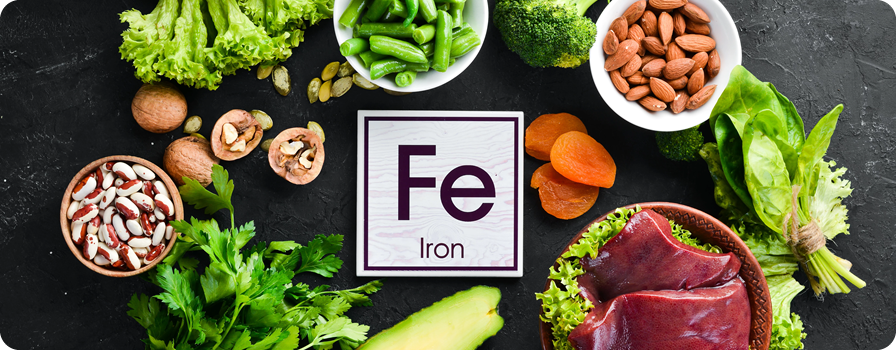Importance Of Iron

Iron is an important mineral that our body needs to function properly. In this blog, we will discuss what iron is, how it works, and why it is so important for our body.
What is Iron?
Iron is a mineral that is essential for life. It is found in many foods and is necessary for the formation of hemoglobin, a protein in red blood cells that carries oxygen from the lungs to the rest of the body.
How Does Iron Work?
Iron is a crucial component of hemoglobin, which is responsible for transporting oxygen to our body’s tissues. When we breathe in air, our lungs transfer oxygen to the red blood cells in our bloodstream, which then bind to hemoglobin. Hemoglobin then carries the oxygen to our tissues, where it is used for energy production and other functions.
Iron also plays a role in the immune system, helping to fight off infections and disease. It is also involved in the production of collagen, a protein that supports our skin, bones, and other tissues.
Why is Iron Important?
Iron deficiency is one of the most common nutritional deficiencies worldwide. Iron deficiency can lead to anemia, a condition where the body lacks enough healthy red blood cells to carry oxygen to the body’s tissues. Symptoms of anemia include fatigue, weakness, dizziness, pale skin, and shortness of breath.
Iron deficiency can also affect cognitive function, particularly in children, and can lead to developmental delays and poor school performance. Iron deficiency during pregnancy can increase the risk of preterm birth and low birth weight in infants.
Food Sources of Iron
Iron can be found in both plant and animal-based foods. Animal-based sources of iron, known as heme iron, are more easily absorbed by the body than plant-based sources of iron, known as non-heme iron. Some of the best sources of heme iron include red meat, poultry, fish, and shellfish. Good sources of non-heme iron include beans, lentils, spinach, tofu, and fortified cereals.
Daily Requirements of Iron
The recommended daily intake of iron varies depending on age, gender, and health status. Women of childbearing age, pregnant women, and children are particularly at risk of iron deficiency and may require higher amounts. Adult men require around 8 mg of iron per day, while women of childbearing age require around 18 mg per day.
Iron Supplements
Iron supplements are available over-the-counter and are commonly used to treat iron deficiency anemia. However, high doses of iron supplements can cause side effects such as constipation, nausea, and abdominal pain. It is important to talk to a healthcare provider before taking any iron supplements.
In conclusion, iron is an essential mineral that plays a vital role in our body’s function. By including iron-rich foods in our diet and ensuring we meet our daily requirements, we can maintain optimal health and reduce the risk of anemia and other health problems associated with iron deficiency. Iron supplements can also be a useful option, but it is important to talk to a healthcare provider before taking them.